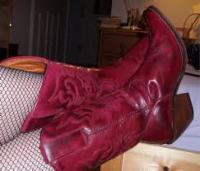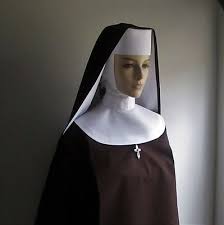 Growing up Catholic in a small Texas town I couldn’t even imagine a different life back then. And there’s no regret or resentment now—not a shred. The only problem was, as a child, I took life too seriously.
Growing up Catholic in a small Texas town I couldn’t even imagine a different life back then. And there’s no regret or resentment now—not a shred. The only problem was, as a child, I took life too seriously. Though I’ve driven by my old school hundreds of times since graduation in 1967, I haven’t gone inside. But I vividly remember each of the eight classrooms; the hallways; the stairs leading up to the second floor; and the “new” addition. I remember the smell of chalk dust and beef stew, and sounds of kids shouting their order to Mr. Soukup, the janitor who operated the candy store.

And I remember the one and only time I set foot in the nuns’ house next to the school. We called it the “convent.” It was a two-story brick building, and to me, it looked like a palace. My visit to the convent came after school and one of our Junior CDA (Catholic Daughters of America) meetings, which were sponsored by a few moms. (I don’t remember much about those meetings, except that we had cookies.) A friend of mine and I were dispatched to bring a note to the convent. It was dinner time, and the nuns were all seated at the table—laughing and chatting like there was no tomorrow. I was stunned, not only by their casual behavior but by their informal dress. They were not wearing wimples, coifs, or veils. They’d shed at least one layer of garment, and had normal hair. All I’d ever seen were their faces below the eyebrows and above the chin. Without all that extra garb, they looked much younger and happier.

I learned that the nuns also had a housekeeper. She not only cleaned the house, did the laundry, and cooked their dinner, she also bought their groceries. Which made sense, since I never saw the nuns anywhere in town, not even the grocery store. Then I started to think, where do they buy their habits? Do they have more than one? Is there a nun-store somewhere? Do they know how to drive? What kind of shampoo do they use? Do they get to pick and choose, or does the housekeeper buy whatever’s on sale?
And how about money? The nuns were not allowed to have any because they’d taken a vow of poverty. I found this out when I overheard my mother talking to another mom. It was Christmastime, and several moms planned to collect money to give the nuns as gifts. When the moms found out that the money would be taken from the nuns, they simply asked them if they needed anything. Most of the nuns asked for stationery and fountain pens. Wow! That meant they had families and wrote letters. One nun asked for candy. How normal is that?
That one short visit to the convent really opened my eyes to nun-life. I was a little sad because their lives were so restricted. But everything evolves, and being a nun is no exception. Nowadays, most nuns are free to do as they please, especially in this country. They drive, shop, and eat out in restaurants, and drink beer if they want to. Since the 1950s, they’ve evolved from mostly conservatives to, in some cases, left-wing liberals. Look at the “Nuns on the Bus” who travel around the country supporting women’s rights. They’re involved in politics, and wear whatever they please. They go to salons and get their hair colored. These women also speak their minds, and often loudly. When Benedict XVI was Pope, he ordered the Catholic bishops to wrangle these renegade nuns. It didn’t do much good—thankfully. If I were a bishop, I sure wouldn’t want to tackle these women. I’d claim I never got the email. (P.S.: I think if Pope Francis had the opportunity, he’d hop on the bus with them.)

If they are, they’ll still be serving. Like they always have. Like they always will.
If you enjoy these blog posts, please share. Except for my family, the names in these essays are sometimes changed to protect the innocent (and the guilty), and I’ve embellished a little.
Watch for Growing Up Catholic in a Small Texas Town Part 6: June 15th.


Was there a “nun-store”! I love these posts, and am grateful that even nuns have been allowed to evolve!
Thanks for reading, Laurel. Yes, a nun-store, there’s got to be one somewhere.